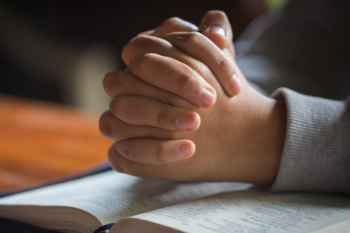 Yesterday the Government published its Schools Bill, which contains significant implications for the influence of religion in schools. Humanists UK welcomes its measures to tackle illegal schools, having campaigned hard on this issue for over eight years. But it is concerned the Bill also has provisions codifying the rules on academies with a religious character.
Yesterday the Government published its Schools Bill, which contains significant implications for the influence of religion in schools. Humanists UK welcomes its measures to tackle illegal schools, having campaigned hard on this issue for over eight years. But it is concerned the Bill also has provisions codifying the rules on academies with a religious character.
The Bill will start in the House of Lords, and will have its second reading – where the proposals will be discussed in more detail – on 23 May. Parts Three and Four of the Bill tackle the problem of illegal schools, many of which are highly religious in character. Part Three will introduce compulsory registration by local authorities of children not in school (aka home educated children), which will for the first time enable local authorities to track where all children are being educated. This will help to close a loophole exploited by proprietors of illegal schools, who claim they are merely providing supplementary religious instruction to children otherwise educated at home.
Meanwhile Part Four contains the measures to increase the regulation of, and Ofsted’s powers to inspect, ‘independent educational institutions’. For example the definition of an ‘independent educational institution’ will be expanded to include any place that provides a majority of education for more than five children. Such settings will have to register with the authorities. Ofsted will get new powers of inspection, and can request police assistance where necessary. It is hoped that this will capture many illegal settings that hitherto have evaded detection by the authorities, by simply not meeting the definition of an independent school.
This is all to be welcomed. However, Part One of the Bill codifies rules around faith academies. At the moment, lots of the rules around academies are not stated in law but are instead in the contracts (known as funding agreements) that the academy signs with the Government. This includes faith-based RE, collective worship, and governance structures. But the Bill proposes to take these rules and put them directly into law. It sets out provisions that will make sure each school’s character ‘reflects the tenets of its designated religion’. Ostensibly, this is to encourage religious organisations to academise without the fear that they will lose their powers to enforce a particular religious ethos.
Humanists UK’s Education Campaigns Manager Robert Cann said:
‘We are delighted to see the legislation to tackle illegal schools in Parliament already, so hot on the heels of Tuesday’s Queen’s Speech. Many of these “schools” are highly religious in nature, teaching a narrow curriculum with little to no safeguarding. We have campaigned for many years for the authorities to be given the powers now being set out in this Bill. It represents a significant win for children’s rights and the Government is to be commended.
‘However it is galling to see, in the same Bill, that anachronistic requirements for compulsory worship in state-funded schools – dating back to the 1940s – are being freshly legislated in 2022.
‘We will use the opportunity to work with humanists in both Houses of Parliament to amend this legislation, seeking to make it more inclusive and reflective of the demographics of modern Britain.’
Notes:
For further comment or information, media should contact Humanists UK Director of Public Affairs and Policy Richy Thompson at press@humanists.uk or phone 020 7324 3072 or 020 3675 0959.
Read more about our work on state-funded faith schools.
Read more about our work on collective worship.
Read more about our work on illegal schools.
Visit the Schools Bill page on the Parliament website.
Read our article on the Queen’s Speech.
Read our article on the Education White Paper, Opportunity for All.
Humanists UK is the national charity working on behalf of non-religious people. Powered by 100,000 members and supporters, we advance free thinking and promote humanism to create a tolerant society where rational thinking and kindness prevail. We provide ceremonies, pastoral care, education, and support services benefitting over a million people every year and our campaigns advance humanist thinking on ethical issues, human rights, and equal treatment for all.
